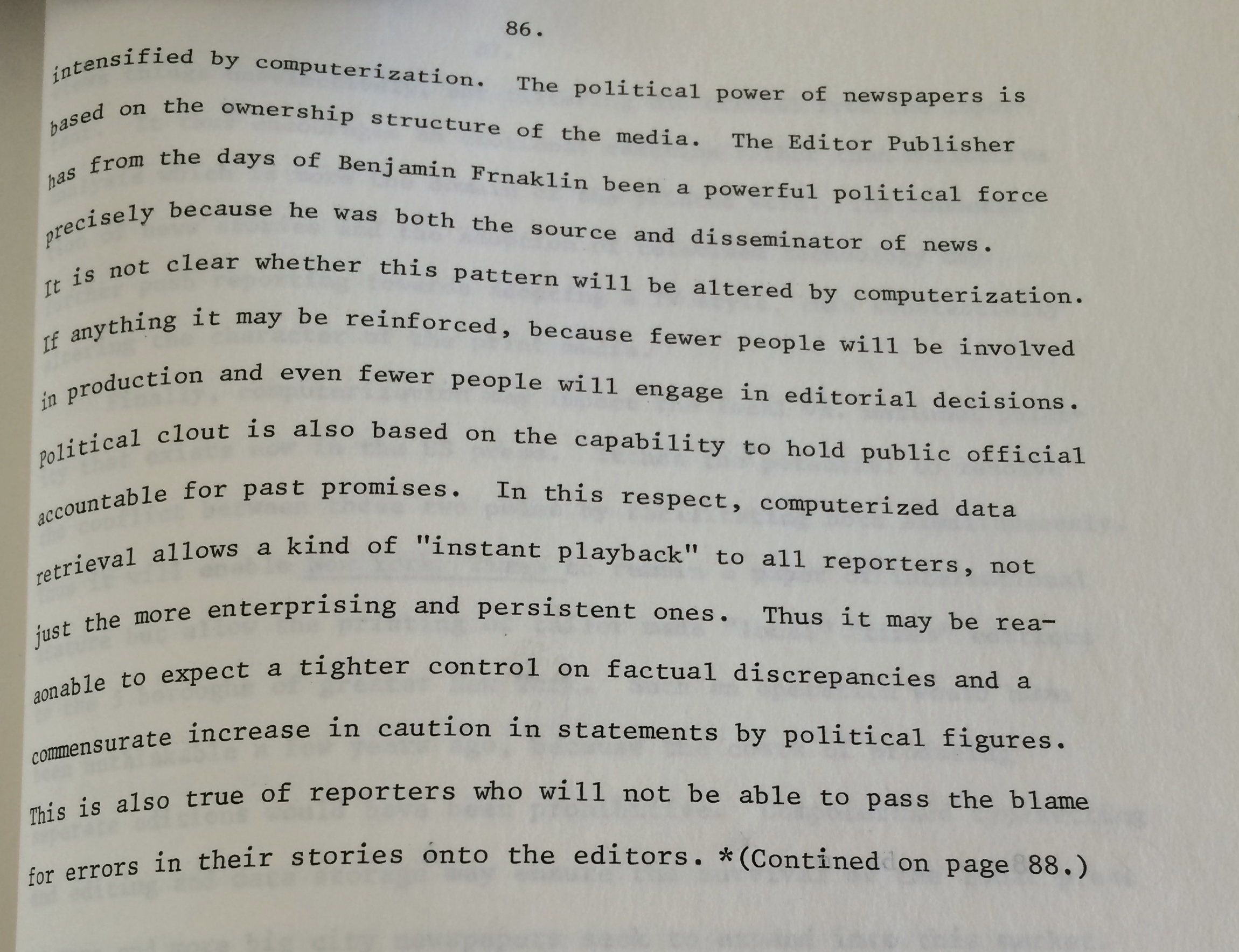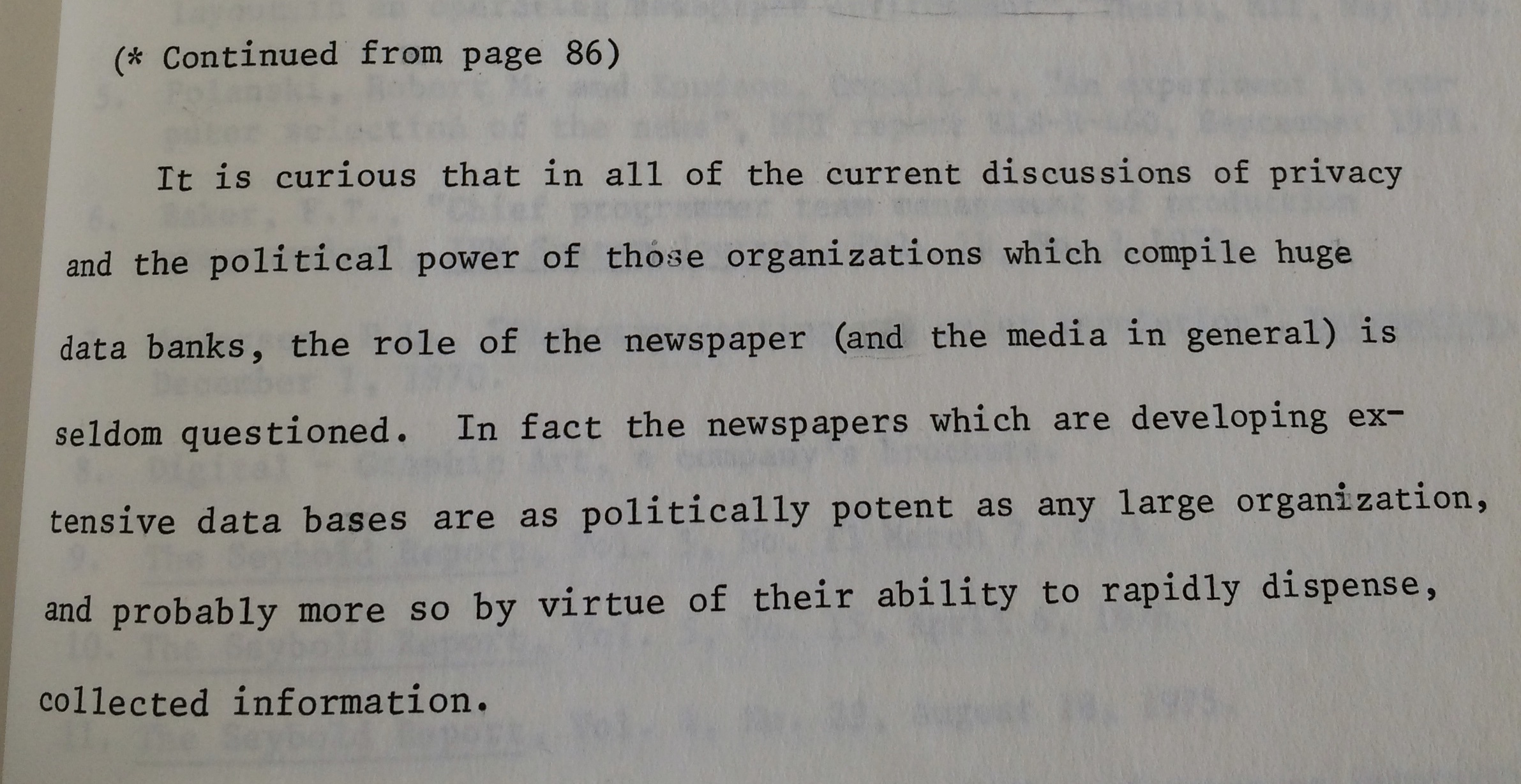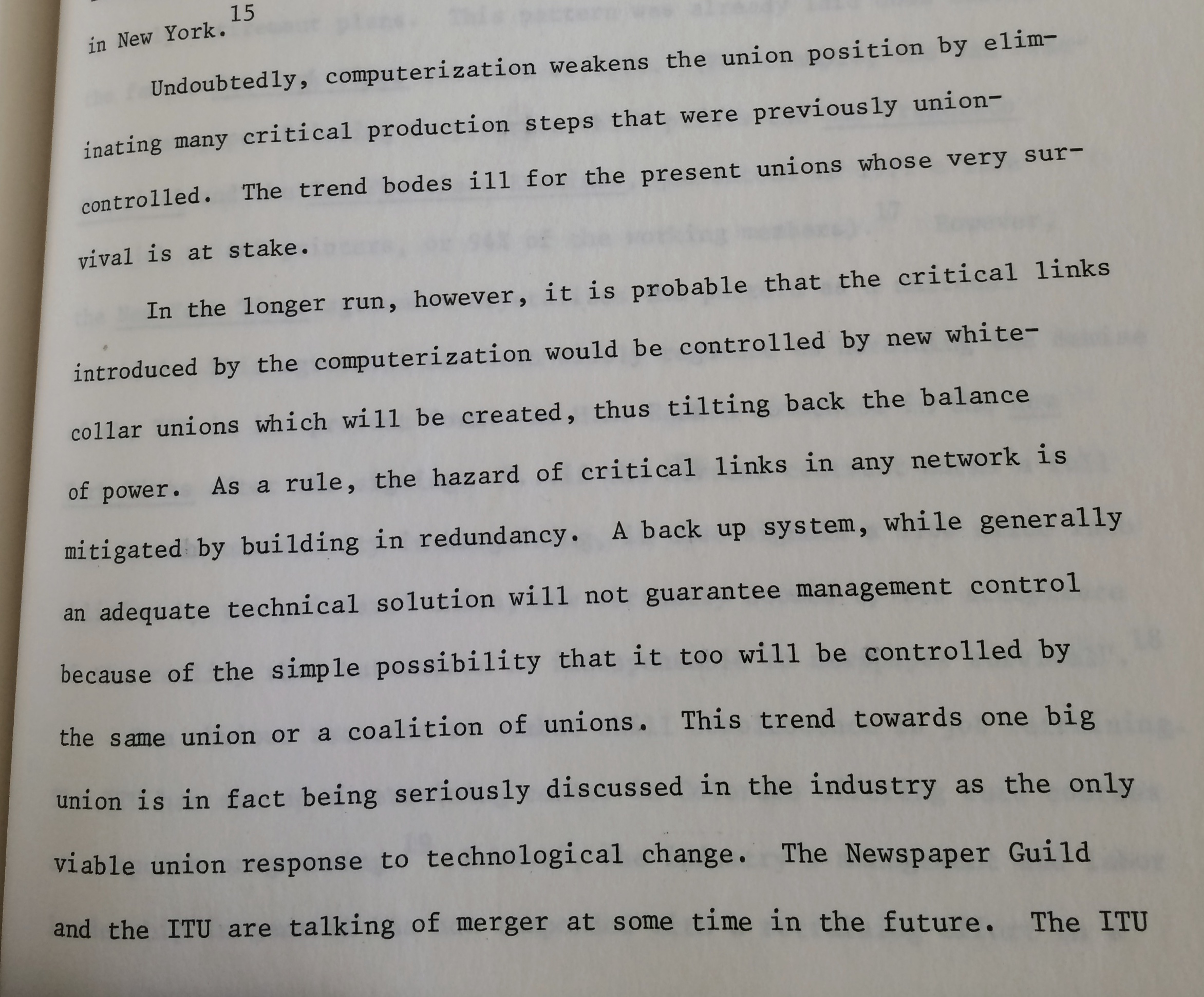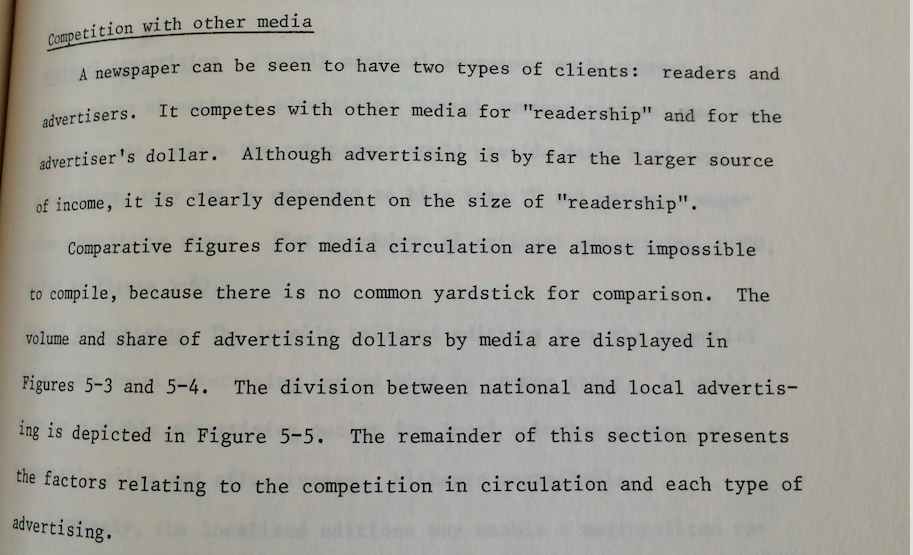“Today anyone – anyone with a few million dollars to spare – can publish his own newspaper.” – Benjamin Nitay, 1976
Thirty nine years have passed since young Benjamin Nitay wrote this sentence in his thesis work for the Massachusetts Institute of Technology (MIT). Back then he surely could not imagine that one day a particular someone ‘with a few million dollars to spare’ would use his fortune to establish a daily newspaper in Israel, “Israel Hayom.” This platform, founded in 2007, shows an almost unconditional support for Nitay, a.k.a. Benjamin Netanyahu.
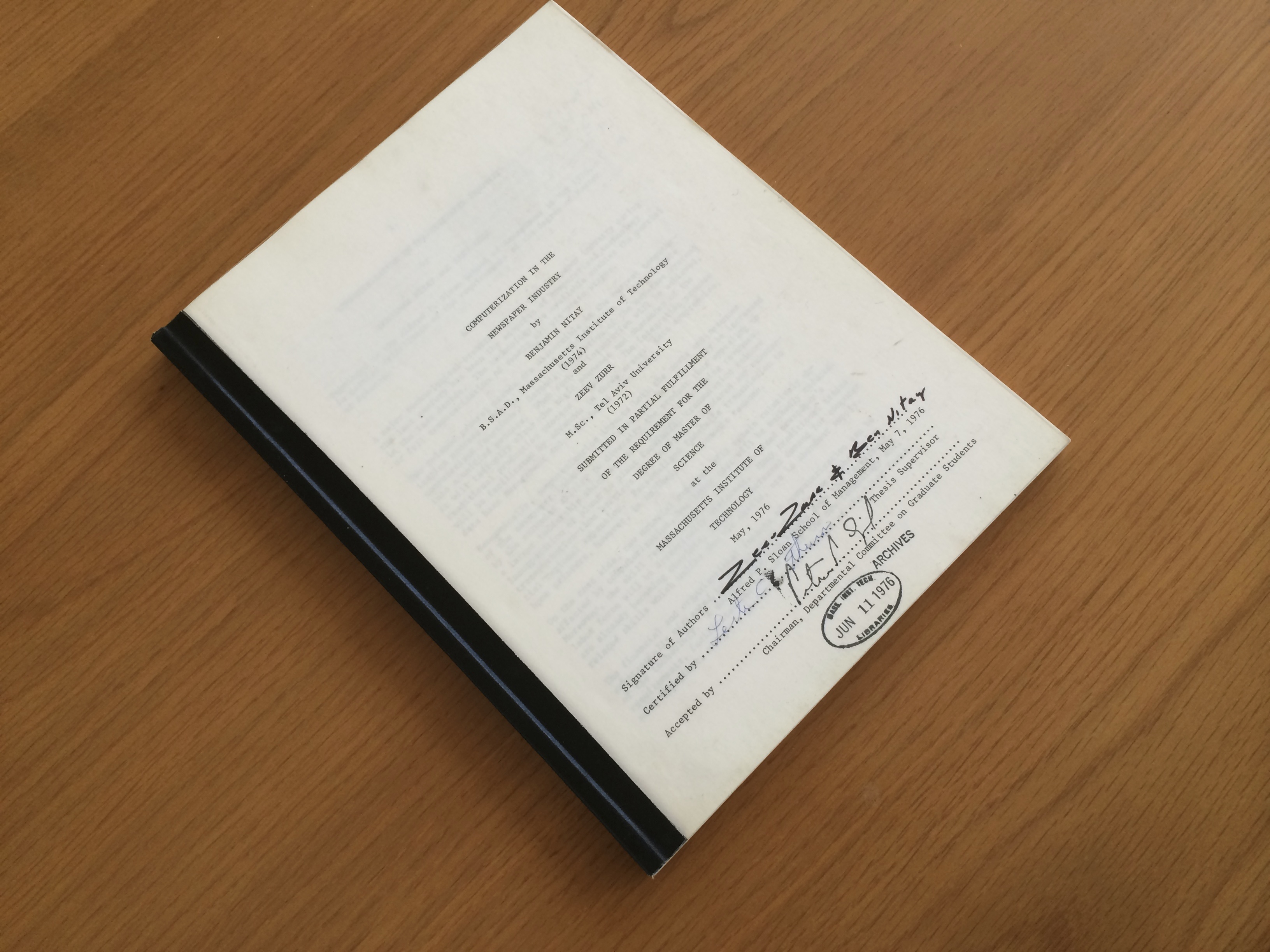
Prime Minister Netanyahu attended MIT in Cambridge, Massachusets from September 1972 until May 1976. During that time he earned two degrees: B.Sc. in Architecture and M.Sc. in Business Management. As published in a previous post here, Netanyahu changed his surname to Nitay while studying in the United States.
Some of Netanyahu’s professors shared their memories about the now famous student in a 1996 MIT Tech Talk article: “He made it clear that he didn’t have four years to get an undergraduate degree,” said Professor Emeritus Leon B. Groisser of the Department of Architecture. “He didn’t say it with bravado,” said Professor Groisser, who served as Mr. Netanyahu’s faculty advisor. “He said it as fact. He proceeded to overload and he did very well.”
Nitay’s thesis was written in May 1976 with Zeev Zurr of Tel Aviv University. Titled “Computerization in the Newspaper Industry,” the thesis discussed the impacts computers are about to bring to newspapers and newsrooms.
Realizing today that Netanyahu has complicated relationships with the media – both local and global, his thesis provides an interesting read on what he thought of media at the time, as a young student at one of the world’s leading universities.
Nitay’s full thesis can be found at the MIT archives. Here are some of its highlights:
On Political Power: “Although some newspapers have taken steps to ensure some diversity of viewpoints…some serious critics of the press question whether such self restraint is possible.”
“The Editor Publisher has from the days of Benjamin Franklin been a powerful political force preciously because the source and disseminator of news.”
“Computerization may enhance the political power of newspapers
by providing them with data banks and the ability to compile and
disseminate pertinent information on issues or people at a very rapid
rate.”
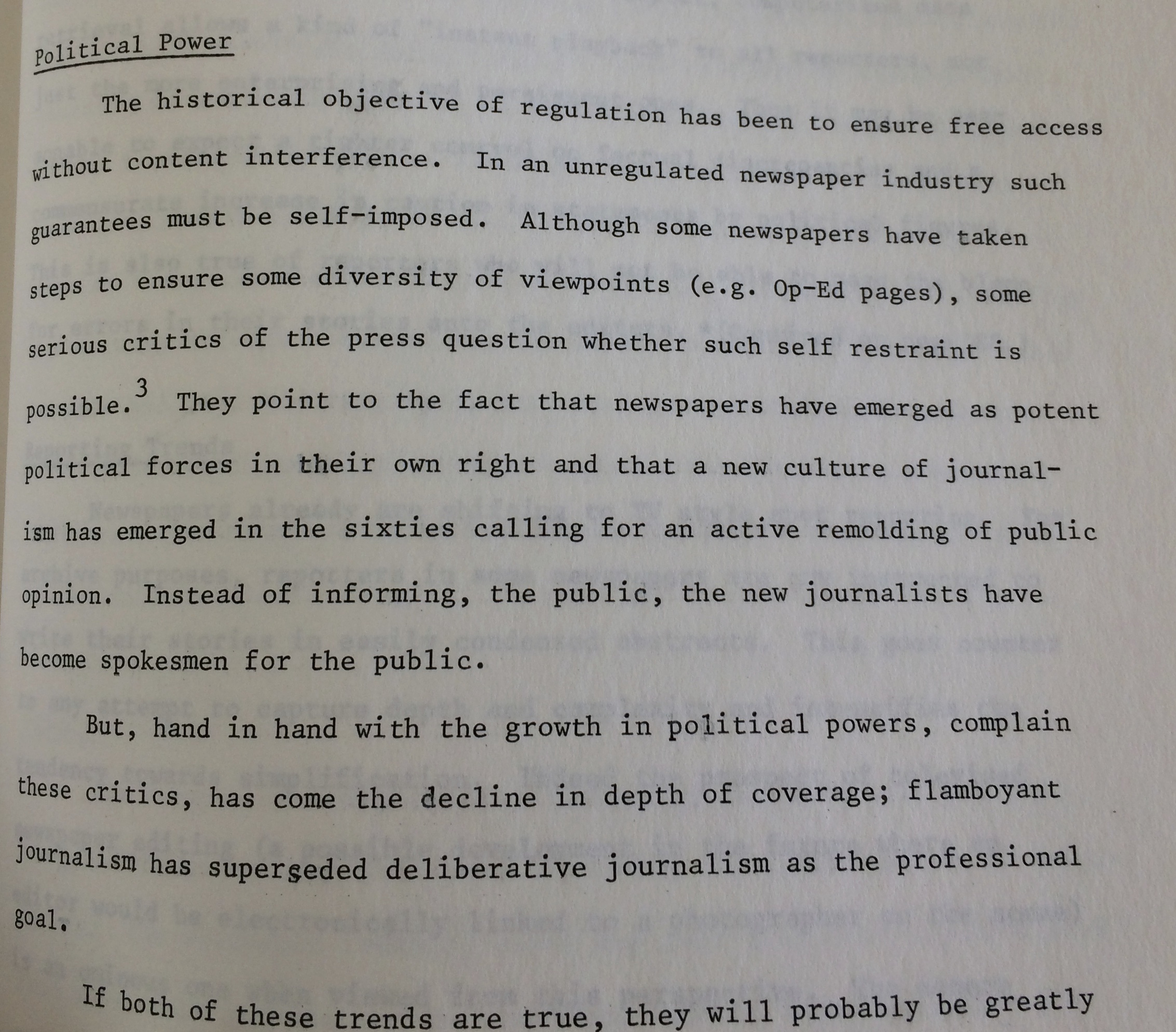
On Unions: “undoubtedly, computerization weakens the union position by eliminating many critical production steps that were previously union controlled. The trend bodes ill for the present unions whose very survival is at stake.”
On Competition: “A newspaper can be seen to have two types of clients: readers and advertisers. It competes with other media for ‘readership’ and for the advertiser’s dollar.”
Netanyahu and the media today
As a Prime Minister Netanyahu is known for his attacks on the media, sometimes describing its members as the elite turned against him. Netanyahu’s nemesis is Yedioth Aharonot, owned by Arnon (Noni) Mozes. The PM and his wife attacked Mozes and his paper time and again, accusing him of trying to topple him as part of their fight in “Israel Hayom”.
“Israel Hayom”
In recent years, Netanyahu is backed by “Israel Hayom” (“Israel Today,”) a free daily newspaper, established by his patron, Sheldon Adelson in July 2007. Four years later this new player in the tight Israeli media market became the most circulated newspaper in the country. The editorial practices of Israel Hayom and its devastating impact on other media outlets have been widely discussed in recent years. A 2013 Freedom House “Freedom of The Press” index, in which Israel’s media status was dropped to ‘partly free’, stated that “the economic impact of Israel Hayom, an owner-subsidized free newspaper and now the largest-circulation daily, threatened the sustainability of other papers and contributed to the collapse and buyout of the daily Maariv.”
Israel Hayom practices such a pro-Netanyahu editorial line that some people call it “Bibiton,” a play on words combining the Hebrew word for newspaper iton and the Prime Minister nick name, Bibi.
Look for the next #Bibistory uncovering the past life of the Prime Minister here on uriblau.com.

